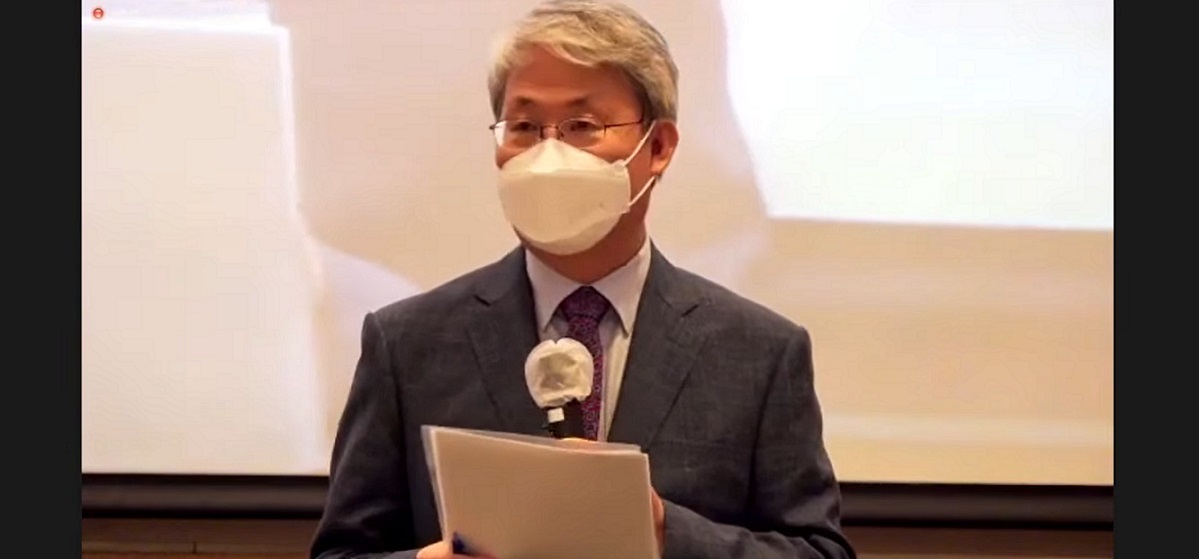 |
Korean Pension Association Presdient Yun Suk-myung speaks during a joint seminar with the Finnish Center for Pensions, titled “International Symposium on the Pensions of South Korea and Finland: Demographic Challenges and Future Responses,” Thursday, at the Federation of Korean Industries’ headquarters in Seoul. (KPA) |
The Korean Pension Association, a group of experts conducting research on the nation‘s public and private pension systems, on Thursday held a joint seminar with the Finnish Center for Pensions based in Helsinki, Finland, a research institute dedicated to developing the nation’s earnings-related pension scheme.
Titled “International Symposium on the Pensions of South Korea and Finland: Demographic Challenges and Future Responses,” the event was aimed at providing expert knowledge and insights on how to reform public and private pension schemes in response to the quickly aging demographic transition.
“In both Finland and Korea, life expectancy has been increasing at a rapid rate, while the fertility rate -- the average number of children each woman is expected to give birth to over her lifetime -- continued to fall,” said KPA President Yun Suk-myung.
“However, Finland managed to keep its birth rate at 1.34, as of August. On the other hand, Korea continued to have low fertility rates for the last 20 years.”
Yun stressed the importance of people-to-people exchanges between the two countries to discuss measures to achieve long-term sustainability for the state pension fund in the wake of the fast-aging population.
The country’s total fertility rate per woman amounted to 1.1 in 2021, the lowest among all 198 countries surveyed, and far lower than the global average of 2.4, according to the report from the UN Population Fund.
During the first session of the symposium, Mikko Kautto, managing director of the Finnish Center for Pensions, delivered a speech on the financial impact of Finnish demographic structure on the nation’s pension systems.
“The demographic development poses serious questions on sustainability of public pensions and public finances in more general. The key purpose of pension systems is to protect older people from poverty and to allow them to enjoy decent living standards. But the necessary condition to carry out this task is to have financial sustainability in pension schemes,” he said.
Meanwhile, market experts, including Cho Young-tae, a professor of public health sciences at Seoul National University, and Nam Jae-woo, a researcher at the Korea Capital Market Institute, briefed in the second session on how the government can develop alternative policies for Korea’s public and private pension systems.
By Choi Jae-hee (
cjh@heraldcorp.com)






![[Out of the Shadows] Seoul room clubs offer drugs to compete for clientele](http://res.heraldm.com/phpwas/restmb_idxmake.php?idx=644&simg=/content/image/2024/11/05/20241105050566_0.jpg)

